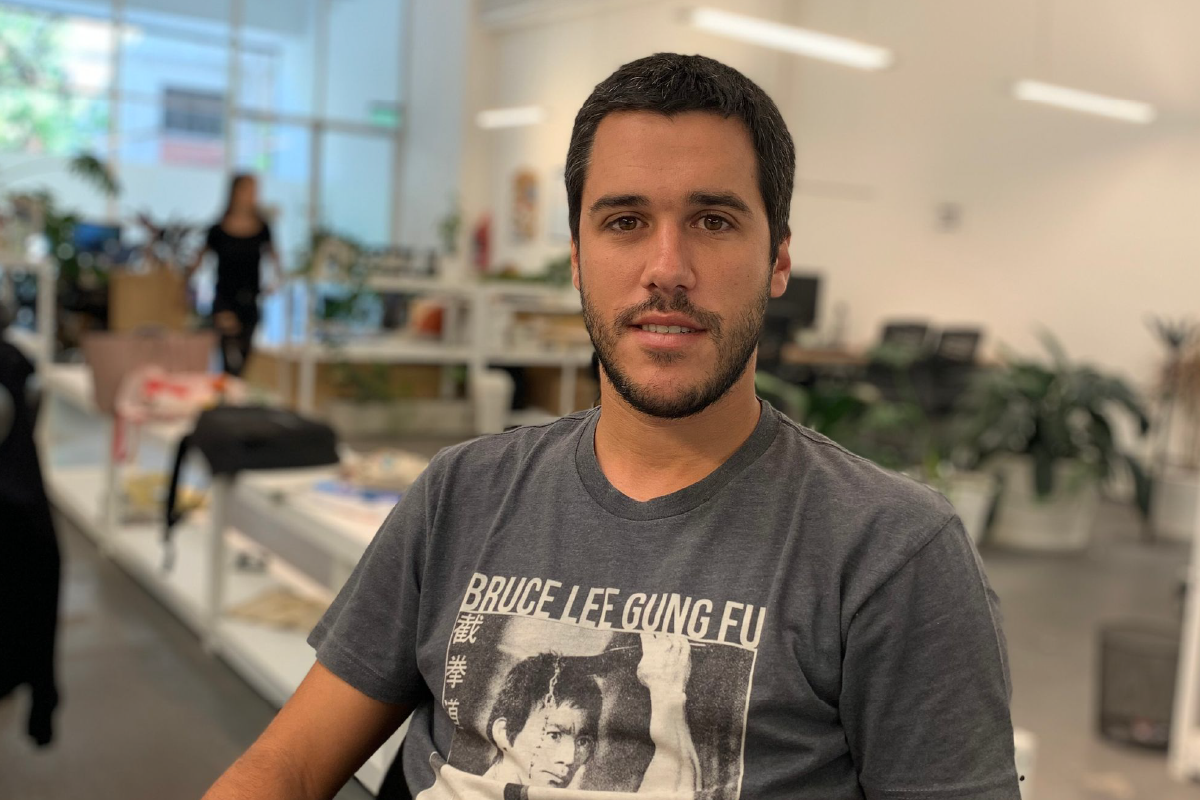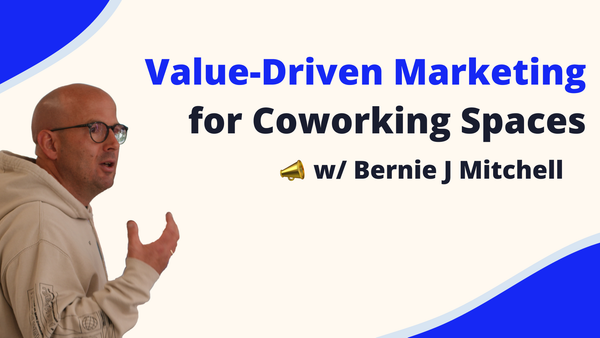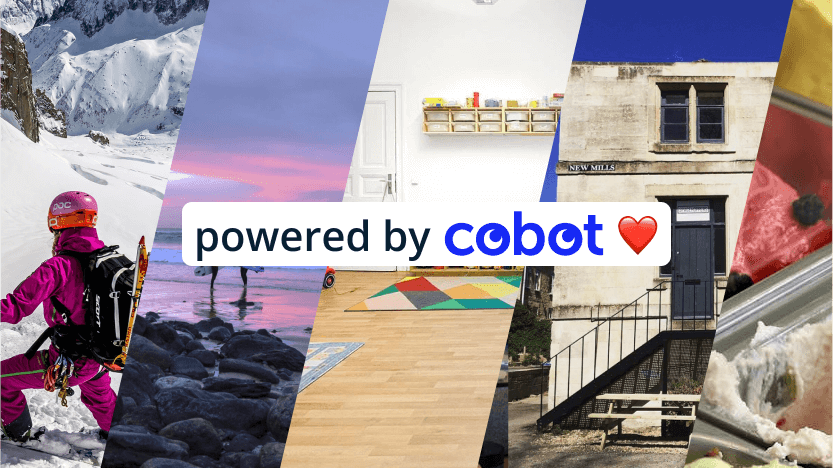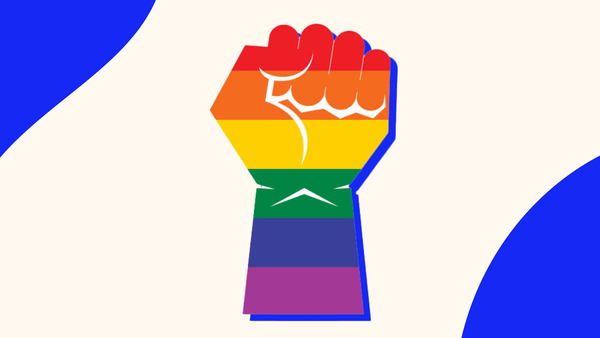Puedes leer este artículo en español aquí.
Agustín D’Elio defines himself as a young entrepreneur (at the age of 30). After studying business management, he began working in an advertising company where he learned about coworking and simply decided to set one up because:
“I really liked the dynamics that were established between people and I wanted to start a business together.”
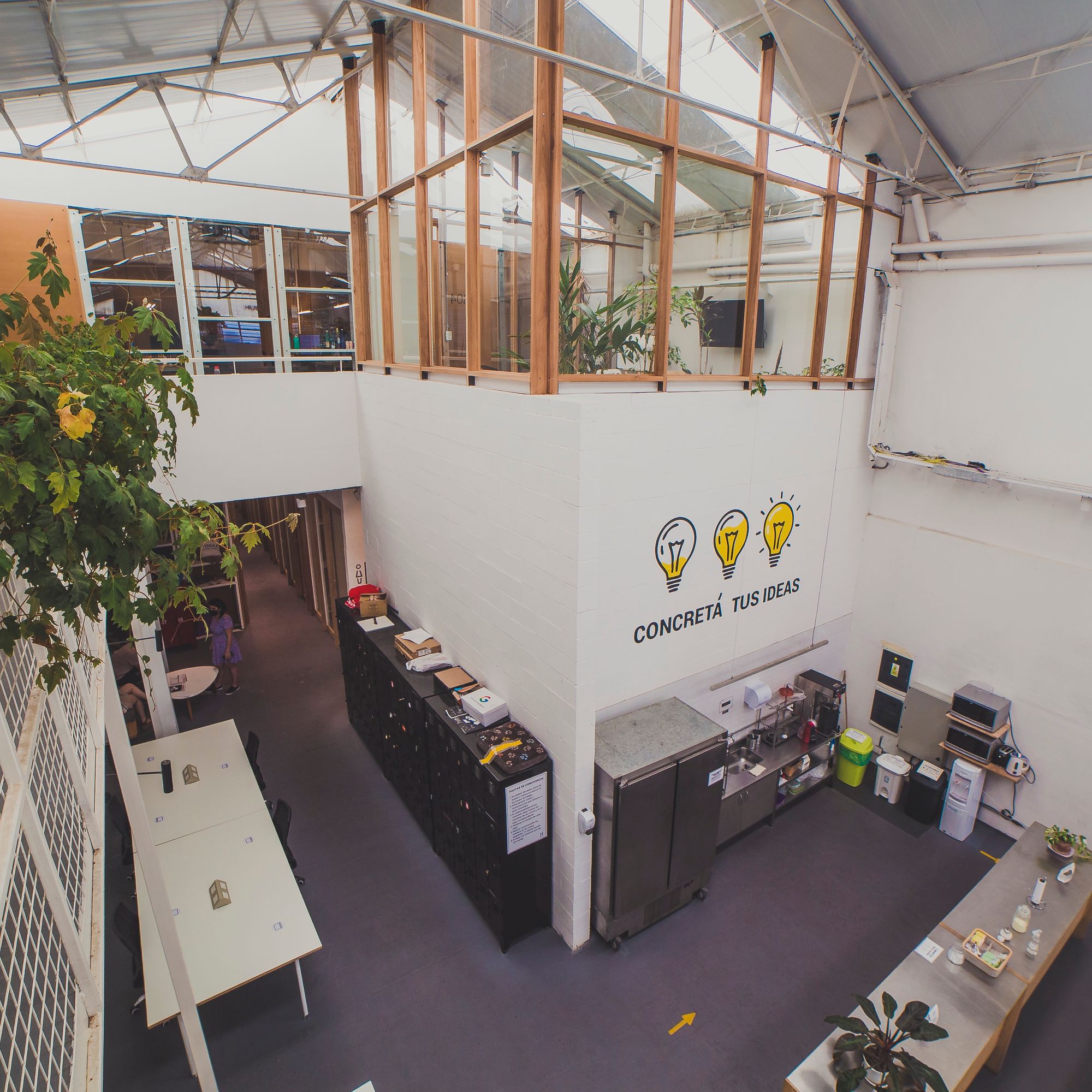
He tells us that his character is more instinctive than rational—and quite optimistic. His travel companions Julian Chadwick, Matías De Caro and Andrés Williams, whom he also met while working at the agency, are actively working at Huerta.
“We wanted to create an environment where people could carry out their projects and become a point of reference in the city of Buenos Aires.”
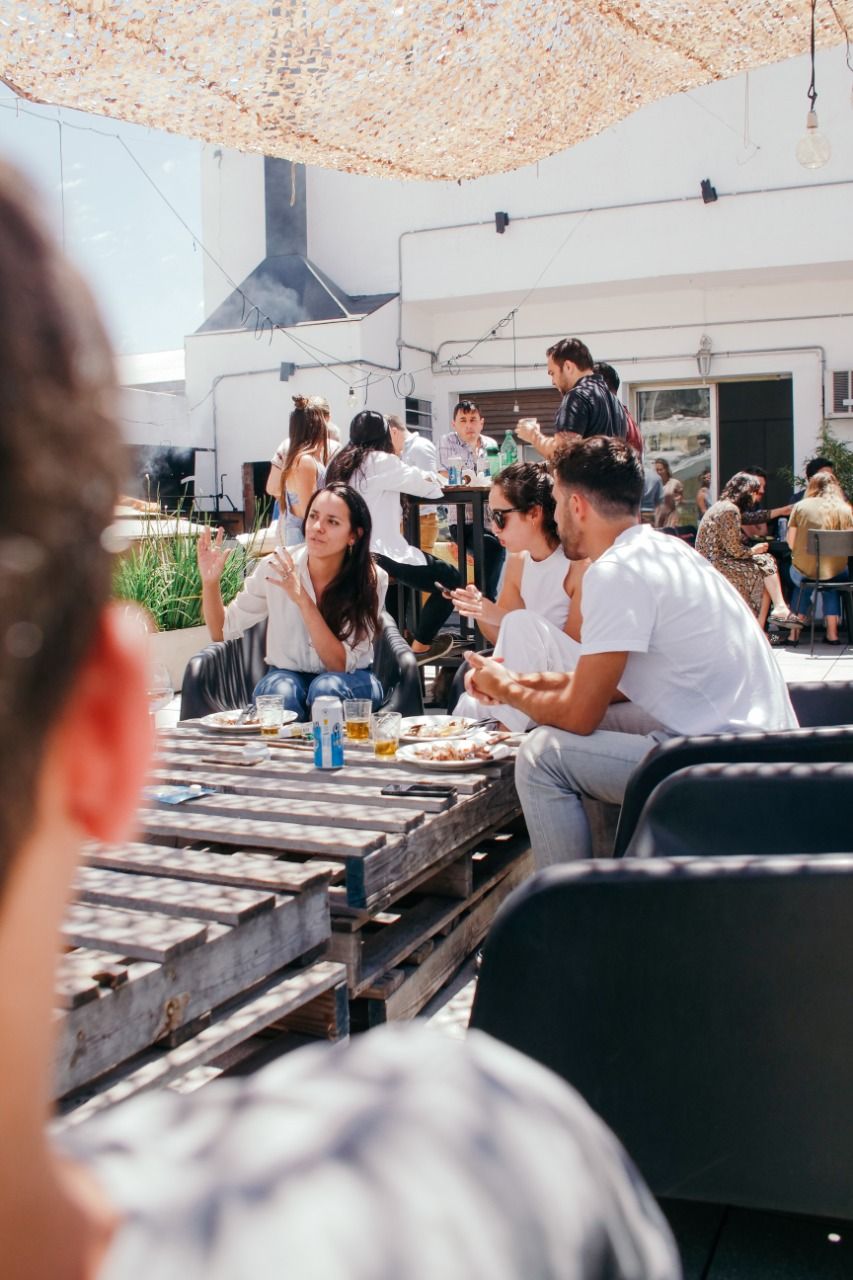
In Buenos Aires competition is important. We asked him about how Huerta sees its competition and how it differentiates itself from the rest of the pack. As he tells us: “Hit has become very corporate, A3 is a technology hub very focused on foreign companies, and La Maquinita is the project that inspired us; they’ve expanded to 10 locations and they have begun to franchise.”
“Our strength is customization, we are more local and we are looking for an impact. We can do that because of the nature of our spaces and how we are organized.”
Huerta was founded in 2017 in a 150 square meter space from which they jumped to a 1500 square meter space. Today, Huerta has two 1500 square meter spaces. We know that one of the most complex factors for any coworking space is staying true to the spirit with which it was founded. There are spaces that must vary their positioning to adapt to a new reality (as Ernesto de Olazával from Comunal told us earlier) but Huerta cowork is currently doing things their own way.
“We have three of the founders working in the spaces, we stay close to the action. In addition, we have selected a team for the front desk that stands out for their soft skills. They are ideal people for a hospitality business while the partners have more “hard” skills and work on everything the members don't see. We don’t want staff to have to do anything that might take them away from customer service.”
Another key factor is how the processes were defined.
“Looking back, maybe we jumped into our expansion and should have waited until we had everything a little more solidly defined. We didn't have defined processes, everything was done by word of mouth and had to be created on the fly. Today there is a manual and procedures for practically everything.”
The way it was created, Agustín tells us, was very simple: they did the tasks until they found the most optimal way and then established a protocol for it.
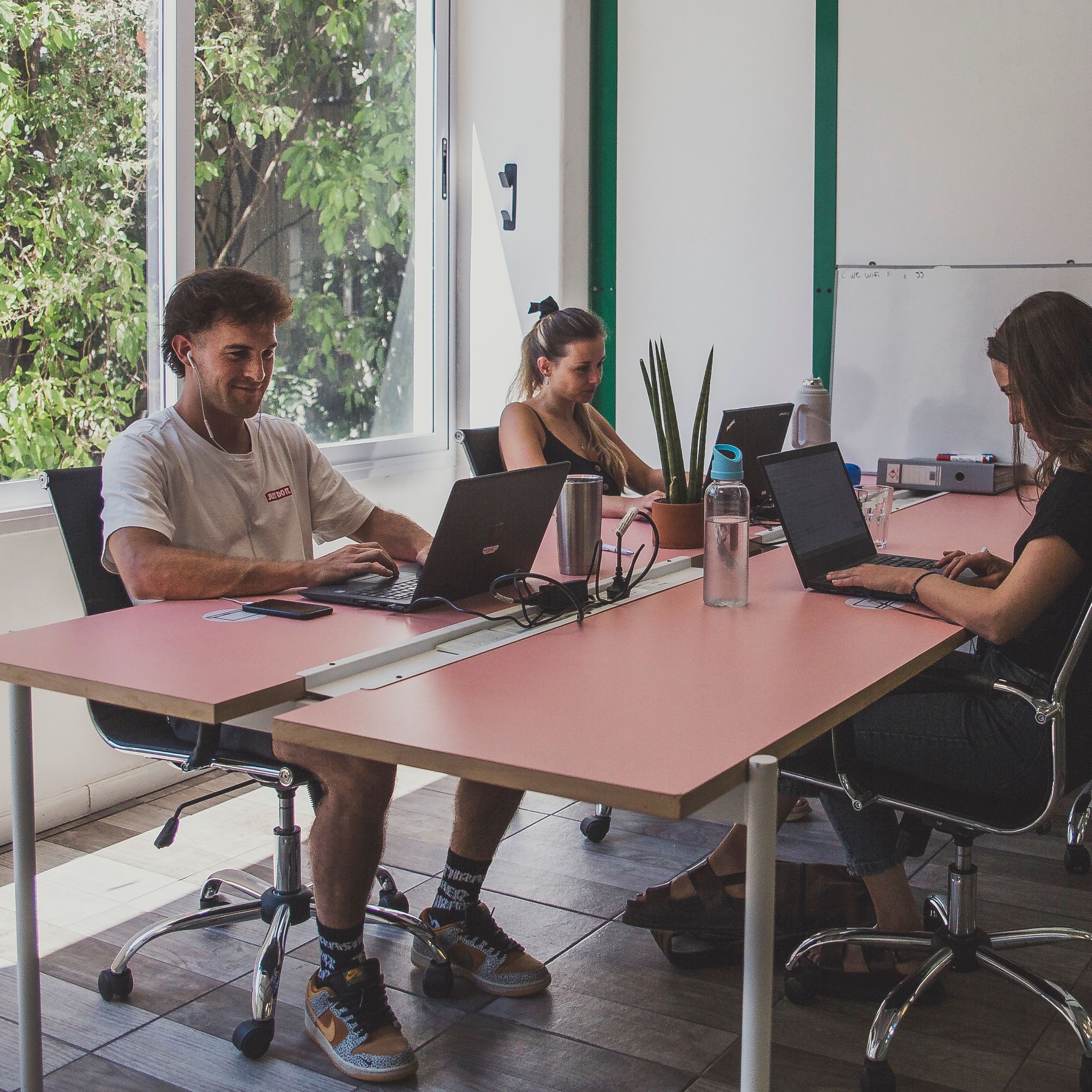
Being close, however, is much more than that: “When there is a conflict, you have to approach and listen. It is being flexible when it would be easier to be rigid. And the best way for our team to maintain these values is to treat them in the same way: you cannot demand honesty, transparency and closeness if you don’t offer them in kind.” They do all this from the conviction that if you act according to your principles you will have a community that sees things as you do: “it is difficult, there’s more work because you have to analyze each situation in context. I believe that if I do things well I will have people around me who do things well.”
The orientation of his space forced us to ask: how do you build a community?
“Asking, listening...those are two important words. If you don’t do that you don’t know your community. Knowing the professionals and the people who come here is fundamental to generate activities that are relevant to them and generate professional and social opportunities for them.”
Agustín tells us that they wanted their community to be responsible, diverse and relaxed. In other words, “we want to create an environment where everyone feels comfortable, that’s why we try to make our activities inclusive.”
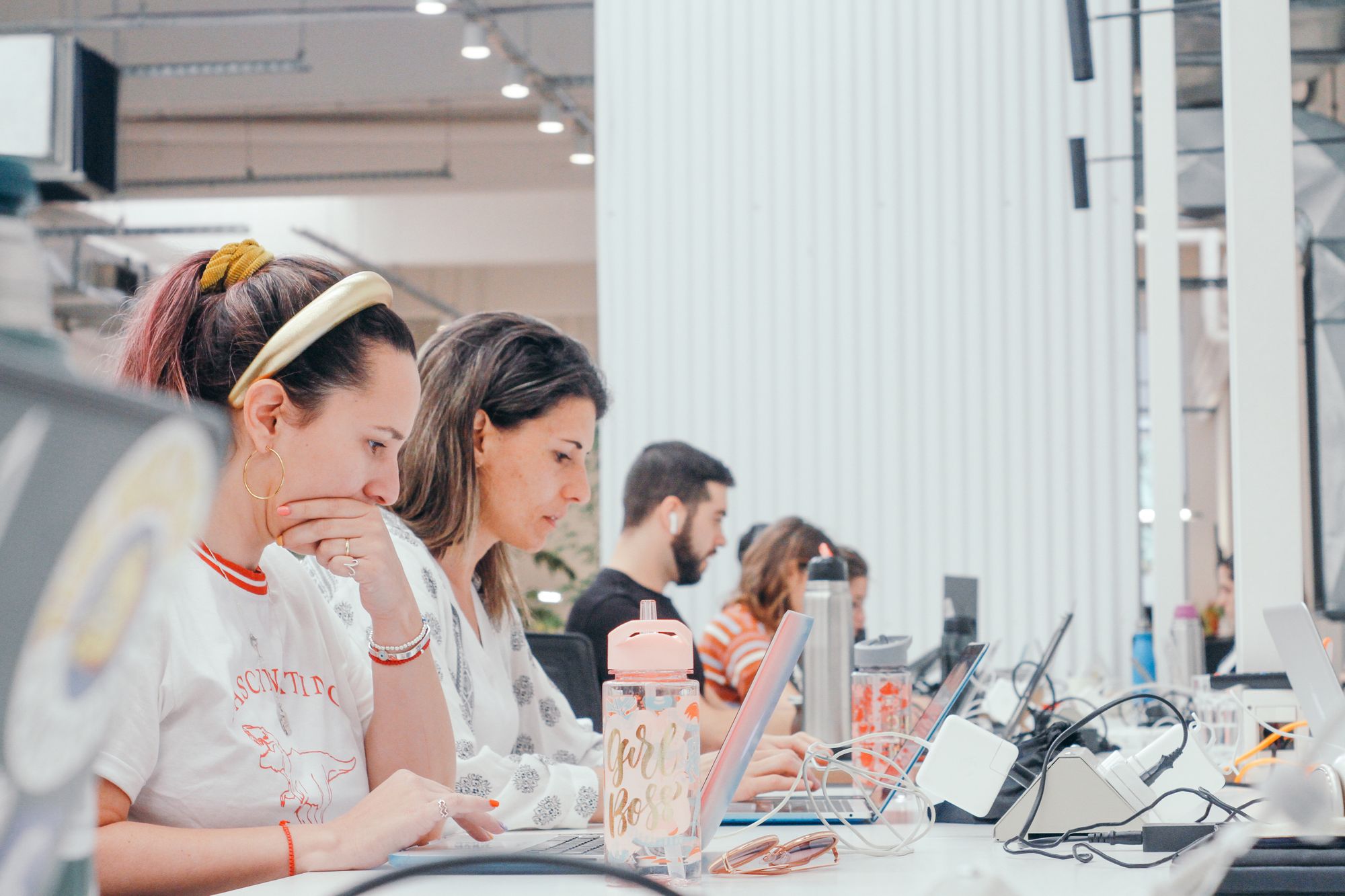
On Huerta’s path towards becoming an inclusive space, Agustín points out weaknesses that they have not yet addressed: “although there is parity in the team all the partners are men.” They do not have an immediate plan to address this concern but are aware that they need to improve. Huerta (as Agustín has told me) accepts everyone, and the majority of its members are between 30 and 40 years old. I asked him about the age of his employees. The moment I asked him the question, a spark of understanding crossed his face, he instantly recognized the problem: all his employees are very young, neither representing their community nor offering a diverse image of the space. He understood that they are missing the opportunity to be more inclusive within their own team and that diversity is not only addressed by trying to achieve gender parity: it is achieved by observing that parity in many different aspects of both the membership base and team composition.
An obligatory questions these days is how the arrival of COVID-19 has affected Huerta Coworking. “It got to us a month late but in April 2020 we lost 80% of our members and turnover. As of today we are at 55-60% occupancy.” Agustin continues “we receive requests from people in a dependency situation to whom companies pay for coworking. However, many of the larger companies have not yet opened.” The positive part of all this, according to Agustín, is that they are beginning to see how companies that before the pandemic had never considered coworking as an option are now doing so. “Traditional companies, large or small, that operate in traditional sectors such as mining, oil, or manufacture mattresses are now interested in the model. Before they didn’t reach us... maybe they would go to WeWork... the spectrum has broadened.”
The question no one has asked Agustin D’Elio is: Why are you entrepreneurs? And the answer is that five years ago when he started he didn’t know why. Now he has realized that he needs to bring his values and vision to an environment where he can share them with others. What the future holds for Huerta Coworking is yet to be determined but they certainly face an interesting challenge: How to scale beyond what its founders can see with their own eyes on a daily basis. Will they keep their essence? Will they be even more inclusive? Will Agustin continue to bring down his vision and apply his values in the reality of Huerta? Time will tell, I hope that for the sake of coworking we can answer yes to all of them.
If you aren’t already using Cobot as your coworking management software, give it a go! You’ll find that our features can help you run your coworking space more effectively and grow your community. Just sign up for a free trial or a live demo session. And if you have questions, our support team is all ears!
Happy Coworking!
